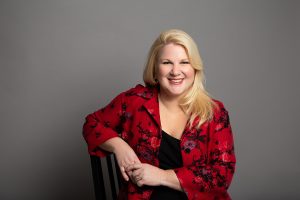IFA Virtual Town Hall Chat Summary 11 September 2020
_____________________________________________________________________________________________
Key Resources
- CanAge: VOICES of Canada’s Seniors: A Roadmap to an Age-Inclusive Canada
For questions please contact info@canage.ca or Laura@canage.ca
Upcoming Events
- IFA Virtual Town Hall – COVID-19 and Older People: The Meningitis Tracker to Drive Change
Friday 18 September 2020 at 7:00 am EDT (Toronto)
- NGO Committee on Ageing – New York
Celebration of the United Nations International Day of Older Persons
Thursday 1 October 2020 at 9:00 am EDT
For more information: www.ngocoa-ny.org
Registration: https://bit.ly/2XWwLmH
- CanAge
Expert Roundtable Discussion on How to Make Canada More Age-Inclusive
Thursday 1 October 2020 at 11:30 am EDT
Registration: www.canage.ca/webinars
- CanAge
VOICES webinar series
2 – 6 October 2020
Registration: www.canage.ca/webinars
- Mosaic Home Care and North York Elder Abuse Network
Celebration of the United Nations International Day of Older Persons
1 October 2020
More information: https://bit.ly/3ip33ih
_____________________________________________________________________________________
Speaker Biography
 Ms. Laura Tamblyn Watts
Ms. Laura Tamblyn Watts
Laura Tamblyn Watts is a lawyer, advocate, researcher and media commentator. Her work focuses on law, aging, abuse, accessibility, law reform, governance and knowledge mobilization. She has previously served as Chief Public Policy Officer at CARP (Canadian Association of Retired Persons) for the past two years and National Director of the Canadian Centre for Elder Law. She currently teaches at the University of Toronto, where she is also a Fellow of the Institute for Lifecourse and Aging.
She is a past Chair of the Canadian Bar Association’s National Elder Law section, where she sits as a current Executive member. Laura is a Board member of the National Initiative for Care of the Elderly (NICE) network and facilitates the section on Law and Aging issues. She is a Board member of the Ombudsman for Banking Services and Investments (OBSI) and a member of the Investment Funds Institute of Canada’s (IFIC) committee on Seniors and Vulnerable Investors (IFIC). She is one of two Canadian representatives on the North American Securities Administrators Association (NAASA) committee on Vulnerable Investors and a continuing member of the Ontario Securities Commission’s Taskforce on Seniors. Laura is also a Board member of PACE Independent Living, a housing and services non-profit which provides attendant care to persons with physical differences. Laura created and oversaw CARP’s research portfolio and is actively involved with a number of National Centres of Excellence and a wide variety of current research initiatives, including the NICE Network, AGE-WELL and the Canadian Frailty Network. She helped to co-found Canada’s second low income seniors’ legal services centre, SeniorsFirst BC, located in Vancouver. She received her undergraduate honours degree in Political Science from Queen’s University and her law degree from the University of Victoria. She was called to the BC Bar in 1999.
_____________________________________________________________________________________
Consultation and collaboration
- The consultation undertaken for the VOICES roadmap took a holistic approach by addressing ageing, housing and more. It is valuable that older adults were included in the consultation process and that the diversity of this population was considered.
- How many people over the age of 65 years were consulted?
- Was there any consultation done with ageing individuals exiting the correctional environment and returning to society?
- Participants look forward to collaborating on how to build upon, act and implement the recommendations in the VOICES roadmap.
- How were the recommendations in the VOICES roadmap received and supported by federal and provincial governments?
- Given the unprecedented worldwide increase in the number of widows, are there any specific provisions and/or recommendations addressing the needs of widows?
- How is the VOICES roadmap being leveraged across national partnership communities to collaboratively advocate for issues affecting older people?
- The term “age-inclusive” is great for engaging a broad range of diverse older people to inform creative solutions for ageing across communities.
- The culture of ageing is in the process of transforming in Canada because of COVID-19, with more attention given to issues affecting older people.
- How is ageism in Canada addressed and what are the roles of institutions and civil society to combat this kind of social discrimination?
Links to existing frameworks
- In Ireland county councils have Age-Friendly Strategy Frameworks such as the Fingal Age Friendly Strategy
- How does the VOICES roadmap link to dementia-friendly communities frameworks, the World Health Organization Global Network of Age-friendly Cities and Communities or the Decade of Healthy Ageing
- In some cases there have been challenges to coalescing Age-Friendly and Dementia-Friendly strategies.
Self-advocacy
- A breadth of service needs have been appraised in the Voices roadmap. Is there a complementary perspective that encourages self-management, self-advocacy and self-responsibility on the part of all older adults?
- The idea of self-responsibility and self-advocacy should be encouraged in public discussion.
- Collaborative Ageing will be releasing a guidebook and workshop series for older adults aimed at self-management and self-advocacy, focusing on making informed choices and plans in terms of housing, health, social networks and caregiving.
- A life course approach is important to consider “how we age” and involves engagement of “young seniors.”
- Taking into consideration in Cameroon many youth are advocating for the older population, which strategies can be applied to promote self-responsibility and self-advocacy?
Policy lens
Lens Statement
“As we prepared an analysis of the current situation facing older people across Canada and proposed solutions, we sought to look through the lens of a variety of key perspectives in order to raise issues of marginalization. These policy lenses include:
Accessibility, neurodiversity, cognitive impairment and inclusion
Indigenous rights and experiences
Ethno-cultural diversity
Immigration and newcomer status
Sexual orientation and sexual expression
Gender and gender expression
Access to justice
Human and civil rights
Intersectionality
Life Course perspective
Socio-economic status
Trauma-informed”


